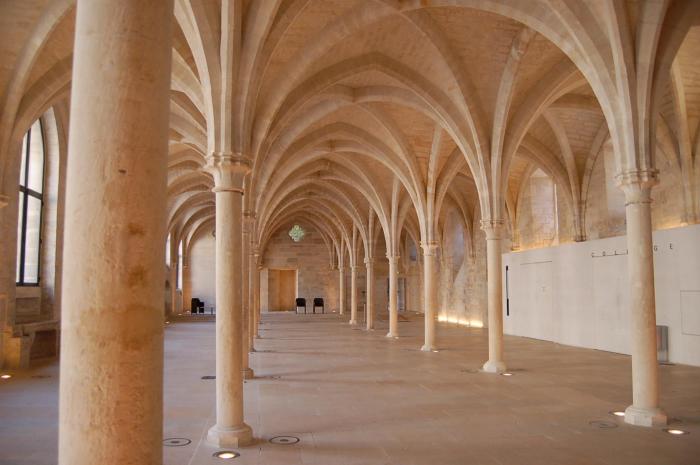What do art in a park and a rehabilitated Cistercian monastery have in common? For one, they have endured and will endure. For another, most tour books may not tell you about them.
Flâner. A French verb meaning to promenade, amble along, without objective, but merely for the pleasure of watching and observing. A man who is thus engaged is a flâneur; a woman, a flâneuse. This is how we inhabit the streets of Paris. We do agree on a general direction but, often, something else develops and since we have no fixed plans, we go with the flow. You can see a lot that way so long as you are open to possibilities and are willing to explore the unexpected.
In this manner, we happen upon a Cistercian monastery and art in a park on the left bank. You can see both for free.
A Medieval Treasure
We found the 13th-century medieval monastery on the way home from Jardin des Plantes, a botanical garden we like to visit in the 5th arrondissement. It was first conceived just decades after the Paris Notre Dame though it might not have taken as long as the cathedral to finish (about 200 years). The building looks gothic, with pointed arched windows and protrusions that might pass for flying buttresses.
We enter an ample beige space. Vaulted ceilings. Many columns. Features characteristic of gothic architecture. Otherwise, it’s empty. None of the frills and luxury in such features as stained-glass, fine tapestries, and wall paintings.


Wikimedia Creative Commons Attribution
Cistercians lived by the tenets of St. Bernard, rejecting luxury and the sumptuous ornamentation in older churches:
“…of what use is that for men vowed to poverty, for monks, for spiritual men?”
In the early 2000s after centuries as a monastery and a more mundane recent past as a prison, a fire station, and police headquarters, it was cleaned and renovated. It reopened in 2008, reclaimed by the Catholic diocese and reincarnated as the College des Bernardins, Preserving its lofty ideals of spiritual and philosophical guidance, it has a research center and offers contemporary art exhibits and performances, meetings and debates in addition to theological education. Not as grand as the Notre Dame, nor as hyped up as the Ste. Chapelle, but decidedly as important to French history. See this for more on this former Cistercian monastery
Art For All By The Seine
Not too far from our current pied-à-terre is a park on the banks of the Seine that we remember going to a few years back. That time, we had impromptu entertainment from a couple of kids playing a clarinet and an accordion. We saw them come, the accordionist on foot and the clarinetist on skates. Both sported a backpack.
They parked themselves by the edge of the river, down from an upper path through which people pass. Whipped their instruments out of their backpacks. Tuned them. Then played a classical piece. It didn’t take long before a crowd gathered on the upper path to watch. Most of us stayed to listen at least until the talented duo finished their first piece.

This time, we see no musicians. So we flâner some more, eventually rewarded by an agreeable surprise—along the Quai San Bernard, a museum of modern sculptures en plein air. Art pieces free for everyone to see. Sculptural works of metal, concrete, or stone that can withstand the elements as well as general human abuse. A few of them, in fact, have been vandalized with graffiti.
A few of those dozen or so pieces:



The graffiti can probably be cleaned without doing significant harm to the art some artists have lovingly created. It makes me sad as we wander from one art piece to the next, pondering what drives people to do damage to someone else’s property. And why bother?



